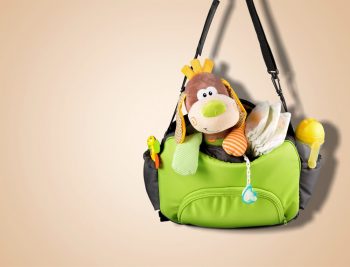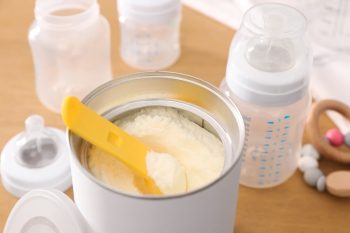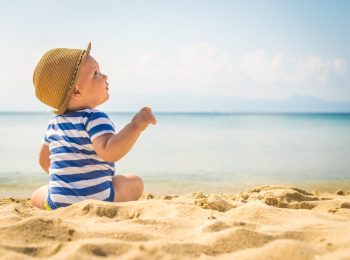Are you itching to quench your wanderlust but wondering when can a newborn travel safely?
Don’t worry, we’ve got you covered. In this article, we explore the question that often lingers in every new parent’s mind: when is it safe for a newborn to hit the road?
Traveling with a newborn requires careful consideration and planning. From the right age to the necessary precautions, there are several factors to take into account to ensure a smooth and enjoyable trip for both you and your tiniest traveler.
In this comprehensive guide, we’ll dive into the recommended age for traveling with a newborn, the important health and safety precautions to keep in mind, and expert tips to make the journey as stress-free as possible.
Whether you’re planning a short domestic getaway or an international adventure, we’ll provide you with the information you need to make an informed decision.
So, if you’re ready to embark on your next adventure with your little one, keep reading to discover the ins and outs of jet-setting with the tiniest traveler.
The benefits of traveling with a newborn
While there are certainly challenges associated with traveling with a newborn, there are also countless benefits that make the experience worthwhile. Here are some advantages to consider:
1. Bonding Opportunities
Traveling with your newborn provides ample opportunities for bonding and creating lasting memories as a family.
Whether it’s exploring new sights, experiencing different cultures, or simply spending quality time together, these shared experiences can strengthen the bond between you and your baby.
2. Early Exposure
Exposing your newborn to new environments, people, and cultures from an early age can have long-lasting positive effects on their development.
It stimulates their senses, promotes cognitive growth, and helps them adapt to new situations.
Traveling can also foster curiosity, open-mindedness, and a sense of adventure in your little one.

3. Flexibility and Adaptability
Traveling with a baby teaches you to be flexible and adaptable, skills that can benefit both you and your child in the long run.
You learn to go with the flow, adjust to unexpected situations, and find creative solutions to any challenges that may arise. These skills can be valuable not just in travel but also in everyday life as a parent.

Safety considerations for traveling with a newborn
Safety should always be a top priority when traveling with a newborn. Here are some important considerations to ensure your baby’s well-being:
1. Vaccinations and Health Check-ups
Before embarking on any trip, it’s crucial to ensure that your baby is up to date with their vaccinations and has had a recent health check-up.
This helps protect them from potential illnesses and ensures that they are in good overall health to handle the stresses of travel.

2. Hygiene and Sanitation
Newborns have delicate immune systems, so it’s important to maintain strict hygiene and sanitation practices while traveling.
Carry hand sanitizers, disinfectant wipes, and disposable changing mats to clean surfaces before placing your baby on them. Avoid crowded places and practice good hand hygiene to minimize the risk of infections.
3. Sun Protection
Protecting your newborn’s sensitive skin from the sun is crucial, especially if you’re traveling to a sunny destination.
Invest in a baby-friendly sunscreen with a high SPF, use a wide-brimmed hat, and dress your baby in lightweight, breathable clothing that covers their arms and legs.
Seek shade whenever possible, and limit sun exposure during peak hours.

4. Temperature Control
Newborns are unable to regulate their body temperature as efficiently as adults, so it’s important to keep them comfortable in varying climates.
Dress your baby in layers, so you can easily adjust their clothing to match the temperature.
Carry lightweight blankets for cooler environments and use a stroller or carrier with proper ventilation to prevent overheating.
Consulting with your pediatrician before traveling
Before embarking on any trip with your newborn, it’s essential to consult with your pediatrician.
They can provide personalized advice based on your baby’s specific needs and health conditions. Here are some key topics to discuss with your pediatrician:
1. Vaccination Recommendations
Your pediatrician can inform you about any additional vaccinations that may be recommended based on your travel destination.
They can also advise you on the appropriate timing for these vaccinations to ensure maximum protection for your baby.

2. Feeding and Nutrition
If you’re breastfeeding, your pediatrician can provide guidance on maintaining your milk supply while traveling and offer tips for breastfeeding in public.
If you’re formula feeding, they can help you plan for an adequate supply of formula during your trip.
3. Medications and First Aid
Discuss with your pediatrician any necessary medications or first aid supplies you should carry while traveling.
They can advise you on essentials such as infant pain relievers, fever reducers, and any specific medications your baby may need for existing health conditions.
Essential items for traveling with a newborn
When traveling with a newborn, it’s important to pack smart and bring along essential items that will ensure your baby’s comfort and well-being. Here’s a checklist of must-have items:
1. Diapers and Wipes
Pack enough diapers and wipes to last the duration of your trip, plus a few extras in case of emergencies. Consider using disposable diapers for convenience while traveling.

2. Clothing and Bedding
Pack a sufficient number of outfits, including extra layers for varying weather conditions. Carry lightweight blankets, a portable crib or bassinet, and a comfortable baby carrier or stroller.
3. Feeding Supplies
If you’re nursing, make sure to pack nursing pads, a breast pump (if necessary), and storage bags for breast milk.
If you’re formula feeding, carry enough formula for the duration of your trip, along with sterilized bottles and nipples.

4. Medications and First Aid
Bring any necessary medications prescribed by your pediatrician, as well as basic first aid supplies such as band-aids, antiseptic ointment, and a thermometer.
5. Entertainment and Comfort
Pack toys, books, and other entertainment items to keep your baby occupied during the journey.
Don’t forget comfort items like pacifiers, a favorite blanket, or a stuffed animal to help soothe your baby during unfamiliar situations.
Tips for a smooth travel experience with a newborn
Traveling with a newborn can be challenging, but with proper planning and preparation, you can make the journey as smooth as possible. Here are some expert tips to help you along the way:
1. Plan Around Sleep Schedules
Try to schedule your travel around your baby’s sleep patterns. This can help minimize disruptions and ensure that your little one is well-rested during the journey.
2. Pack Light and Stay Organized
Traveling with a newborn often means carrying a lot of gear, but try to pack only the essentials to avoid excessive baggage.
Use packing cubes or organizers to stay organized and make it easier to find what you need when you need it.

3. Be Mindful of Noise Levels
Newborns have sensitive hearing, so it’s important to be mindful of noise levels during travel. Carry noise-canceling headphones or earplugs for your baby, especially during loud flights or crowded places.
4. Take Breaks and Pace Yourself
Traveling with a newborn can be tiring, so be sure to take breaks and pace yourself.
Plan for frequent stops, whether it’s during a road trip or at airports, to give yourself and your baby time to rest and recharge.
Destinations and activities suitable for traveling with a newborn
When choosing a destination for your trip with a newborn, it’s important to consider the suitability of the location and the activities available.
Here are a few destinations and activities that are particularly well-suited for traveling with a newborn:
1. Beach Resorts
Beach resorts offer a relaxed and family-friendly environment, making them ideal for traveling with a newborn.
You can enjoy the sun, sand, and sea while having access to amenities such as pools, baby-friendly facilities, and on-site childcare options.

2. National Parks
Exploring national parks can be a great way to introduce your newborn to nature and enjoy outdoor activities as a family.
Opt for easy trails or scenic drives that allow you to appreciate the natural beauty without exerting too much physical effort.
3. City Breaks
Many cities offer a range of family-friendly attractions and amenities, making them suitable for traveling with a newborn.
Choose cities with accessible public transportation, baby-friendly parks, and attractions that cater to young children.
4. Cruise Vacations
Cruises provide a convenient way to explore multiple destinations while having access to all the necessary amenities onboard.
Look for cruise lines that offer family-friendly facilities and services, such as nursery programs and dedicated play areas for infants.
5. Staycations
If you prefer to stay closer to home, consider planning a staycation. Explore local attractions, visit nearby parks or beaches, and take advantage of the amenities available in your own city or town.
Traveling with a newborn can be an enriching and rewarding experience for both parents and their little ones.
By considering the recommended age for travel, taking necessary safety precautions, consulting with your pediatrician, and packing essential items, you can ensure a smooth and enjoyable journey.
Remember to be flexible, adapt to your baby’s needs, and embrace the adventure of exploring the world together.
So, when you’re ready to embark on your next adventure, don’t let the question of when it’s safe for a newborn to hit the road hold you back.
With careful planning and preparation, you can create lifelong memories and nurture your baby’s sense of wonder from an early age. Bon voyage!


